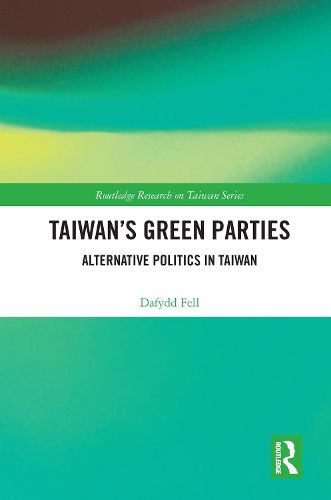Readings Newsletter
Become a Readings Member to make your shopping experience even easier.
Sign in or sign up for free!
You’re not far away from qualifying for FREE standard shipping within Australia
You’ve qualified for FREE standard shipping within Australia
The cart is loading…






Examining the Green Party Taiwan (GPT) since its establishment through the aftermath of the most recent national elections in January 2020, this book focuses on Taiwan’s most important movement party over the last two and a half decades. Despite its limited electoral impact, its leaders have played a critical role in a range of social movements, including anti-nuclear and LGBT rights campaigns.
Plotting the party’s evolution in electoral politics as well as its engagement with the global green movement, this volume analyses key patterns of party change in electoral campaign appeals, organisation and its human face. The second half of the volume concentrates on explaining both the party’s electoral impact and why the party has adjusted ideologically and organisationally over time. Based on a wide range of material collected, including focus groups, interviews and political communication data, the research relies heavily on analysis of campaign material and the voices of party activists and also considers other Green Parties, such as the splinter Trees Party and GPT-Social Democratic Alliance.
Applying a wide range of theoretical frameworks to plot and explain small party development, this book will appeal both to students and scholars of Taiwan’s politics and civil society but also to readers with an interest in small parties and particularly environmental parties and movements.
$9.00 standard shipping within Australia
FREE standard shipping within Australia for orders over $100.00
Express & International shipping calculated at checkout
Examining the Green Party Taiwan (GPT) since its establishment through the aftermath of the most recent national elections in January 2020, this book focuses on Taiwan’s most important movement party over the last two and a half decades. Despite its limited electoral impact, its leaders have played a critical role in a range of social movements, including anti-nuclear and LGBT rights campaigns.
Plotting the party’s evolution in electoral politics as well as its engagement with the global green movement, this volume analyses key patterns of party change in electoral campaign appeals, organisation and its human face. The second half of the volume concentrates on explaining both the party’s electoral impact and why the party has adjusted ideologically and organisationally over time. Based on a wide range of material collected, including focus groups, interviews and political communication data, the research relies heavily on analysis of campaign material and the voices of party activists and also considers other Green Parties, such as the splinter Trees Party and GPT-Social Democratic Alliance.
Applying a wide range of theoretical frameworks to plot and explain small party development, this book will appeal both to students and scholars of Taiwan’s politics and civil society but also to readers with an interest in small parties and particularly environmental parties and movements.